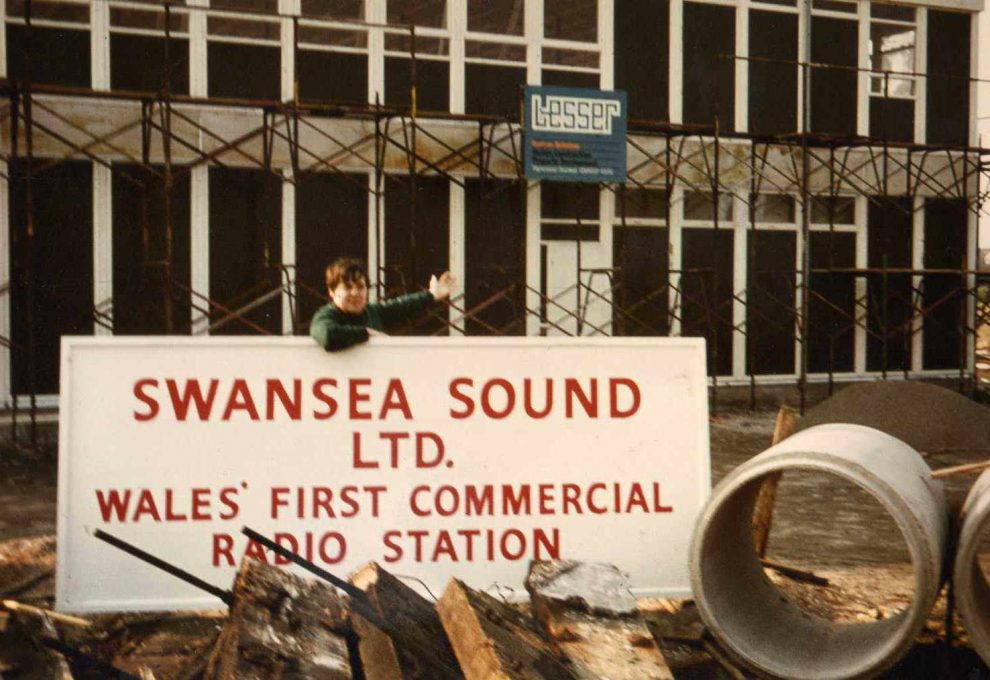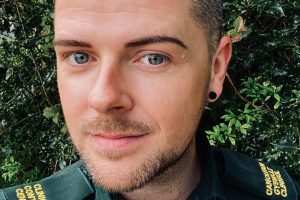SWANSEA SOUND, the independent local radio station which serves communities around Swansea and South West Wales, faces extinction.
The station’s owners, Bauer Media, plan to close the station’s Gowerton studios and transfer production to Manchester. Under the plan, programming would be centred in Manchester and the station’s local identity would be lost.
When it opened, in 1974, Swansea Sound was the first bilingual independent radio station in the UK. Its loss as a truly local broadcaster will add to the increased flight of local media to the control of distant corporations with no ties to the localities they are supposed to serve.
Swansea Sound is one of the oldest local commercial radio stations in the UK and the first and the last still broadcasting in Wales under its original name
Seventh on-air and almost 46 years old (start date September 30th 1974), it was part of the Independent Local Radio network under the watchful eye of the IBA (Independent Broadcast Authority)
It was created by a group of local business people, some from newspaper backgrounds.
It’s been a vital lifeline for community/local information especially during times of crisis and been a source of fun and community support through its roadshows (and their bus!) and charity work.
Programmes are still made by local staff who live in Swansea who know the makeup of the people.
It’s won many broadcasting awards for its innovative documentary programmes notably a Sony Award for “Aberfan -An Unknown Spring” in 1987 and a special award at the New York International Radio Festival for “Hooray for the Last Grand Adventure’” documenting Amelia Earhart’s 1928 flight to West Wales.
And now, cards on the table. This is a deeply personal story.
My late father, Lloyd Coles, joined Swansea Sound in early 1975 only a few months after it opened. Originally presenting the folk programme, for a time he presented separate folk and country music programmes, before becoming one of the UK’s foremost country music broadcasters and the winner of the International Country Music Broadcaster of the Year Award, presented as part of the annual CMA Awards.
The pay from Swansea Sound barely covered his expenses for making the journey from Pembrokeshire to Victoria Road, Gowerton. In the time before bypasses, road improvements and dual carriageways, the lights of his car illuminated the bends in the roads all-too-well for nervous front seat passengers. Those concerns weren’t eased by his habit of eating piping hot fish and chips from a precariously balanced wrapper perched in front of the steering wheel.
In the late 1970s, he walked from Pembroke Dock to Haverfordwest through snowdrifts which had paralysed the whole of south and west Wales to catch the milk train to Swansea and broadcast live and non-stop while the region was knee-deep in snow.
Back then, Swansea Sound was a lonely local voice, the echoes of which could barely be caught in South Pembrokeshire on a calm and still night. It was rooted in the area it served and the businesses advertising on it were cheerfully local and mundane. The presenters and freelancers (of which my father was one) didn’t get much for the efforts but they were all identifiably local voices, many of whom remain in the area long after they retired from the airwaves.
My father remained at Swansea Sound for over forty years. He didn’t retire and he wasn’t given the chance to say goodbye to his loyal listeners on air. Ill health overcame him. In those last years, he would struggle into a car – usually driven by a friend, my brother-in-law, and occasionally by me – and take his carefully handwritten scripts and CDs into the studio and broadcast live without giving a hint that his health was failing.
On one occasion, he turned over his car on the bends near Llanddowror. A fire crew cut him out and helped him through the car’s back window. The ambulance took him home, he then called my brother-in-law to make sure he got to the studio on time to make his broadcast live.
Local radio, local independent radio, commands that sort of loyalty from its presenters and its listeners. A lot of the voices aren’t as smooth and practised as the schmooze merchants on national radio – as the late Terry Wogan called them once ‘the anyhow brigade’.
‘That was Chaka Khan singing ‘I Feel for You’, which was written for her by Prince. Anyhow, here’s Simply Red…’
Local radio, the good stuff, is earthy and sometimes a little rough around the edges.
And now that is being lost in a sea of bland, one-size-fits-none, central programming.
Bizarrely, some of Bauer’s other stations in England will retain their local base. They offer – allegedly – more distinctive programming than the only independent radio station in Wales which remains true to its roots.
After almost half a century that would be disastrous for listeners, advertisers, local charities and decision-makers in area.
There’s a petition calling for the Welsh Government to step in – and it’s certainly something it should express a view upon – and another calling for Bauer Media to reverse its decision.
Both can be found online, at the Facebook page SAVE Swansea Sound and on change.org.


















Add Comment